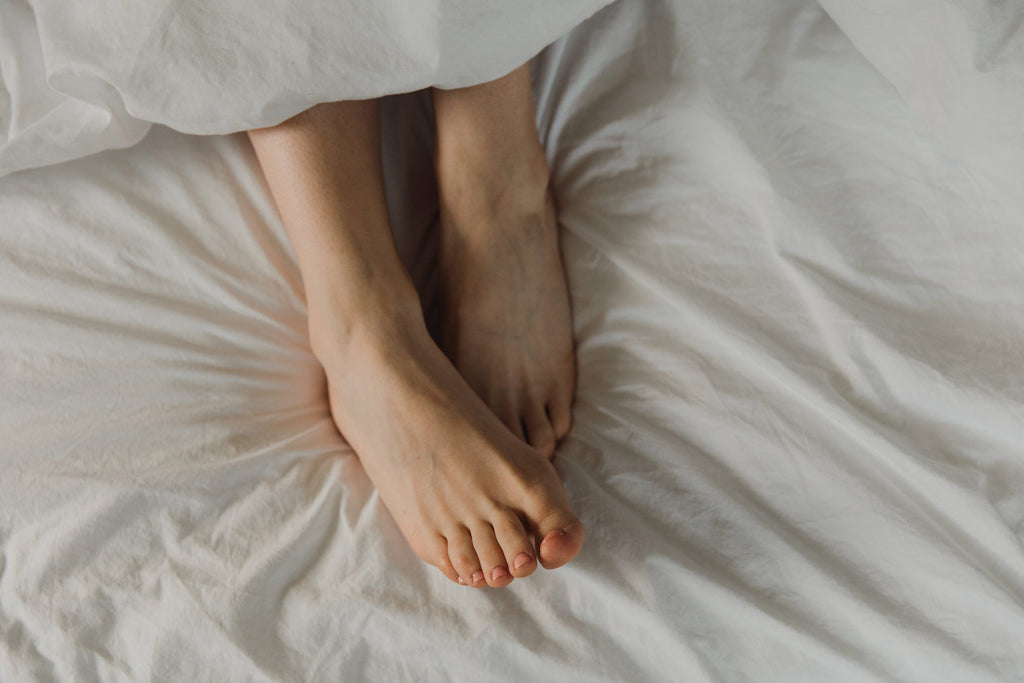Sleep - no matter who you are or what you do, it is a fundamental part of our health, so you know how frustrating it can be when a good night’s sleep is hard to get! Occasional restless sleep happens to all of us, but what should you do if those sleepless nights become a pattern? Maybe you've tried an over-the-counter medication, practiced good sleep hygiene, or even gone to your doctor for a prescription sleep medication, but there is another option. Most people think of Chinese medicine for helping with physical discomfort, but it’s also traditionally used to support healthy sleep and relaxation.
Chinese medicine views every aspect of the world in terms of Yin and Yang - two connected, yet opposing forces in nature and in the human body. In the natural world, we have the continual alternation of day following night. In Chinese medicine terms, the daytime is associated with Yang, while nighttime is associated with Yin. Similarly, for the human body, Yang is associated with being awake, and Yin is associated with sleep.
Yang Qi to Yin Qi – Day to Night
During the day, Yang Qi (or energy) is abundant in the environment, and Yang Qi circulates through the exterior of the body. This energy close to the surface allows us to be awake and alert to go about our daily activities. When it starts to get dark at night, this signals the transition from Yang to Yin. Yang Qi starts to move inward, and the body winds down in the evening, becoming less active and more relaxed. When Yang Qi flows inward and enters the Yin interior of the body, we sleep. Normal sleeping and waking cycles are therefore controlled by the balance of Yin and Yang in the body.
The Concept of "Shen"
Another element linked with sleep in Chinese medicine is the Shen. The Shen is most closely related to our conscious awareness and spirit. It is our ability to perceive, interact, and communicate with the world. In Chinese medicine, it is said that the Shen resides in the Heart, and when the Shen peacefully goes to the Heart at night, you will sleep soundly. The Shen is anchored to the Heart by Heart Blood and Yin. These nourishing forces in the body allow the spirit to disconnect from the outside world for sleep, and for the spirit to stay grounded and calm at night.
Sleep challenges can manifest in various ways, and people may experience different types of disturbances. Such as:
- Hard time falling asleep, but sleeping well after falling asleep
- Hard time staying asleep - waking up frequently at night and then having a hard time falling back asleep
- Vivid dreams or dream-disturbed sleep
- Restless sleep - sleep a normal amount of hours, but toss and turn a lot, and don’t feel rested when you wake up
- Wake up too early in the morning and have a hard time falling back asleep again
- Disordered sleep cycle, either temporary or more chronic - too much caffeine, working out or eating late at night, jet lag, shift work

How an Acupuncturist Can Help with Sleep
In Chinese medicine, occasional sleeplessness or restlessness is viewed through a variety of traditional diagnostic patterns. When you see a Chinese medicine practitioner for sleep support, you’ll be asked in-depth questions about the quality of your sleep and other questions to determine your unique pattern diagnosis. This pattern will then determine which traditional herbal approaches may best support your individual wellness goals.
Sleep can be one of the most powerful parts of your day. When you are sleeping well, you give your body time to rest and recover, you wake up feeling like you can take on the world, and you have the energy to perform at a high level during the day. By taking care of the quality of your sleep, you are taking care of your overall health.
References:
Deng, T. (2004). Practical Diagnosis in Traditional Chinese Medicine. Edinburgh, London: Churchill Livingstone.
Li, X. & Zhao, J. (1993). Acupuncture Patterns & Practice. Seattle, WA: Eastland Press.
Maciocia, G. (1989). The Foundations of Chinese Medicine: A Comprehensive Text for Acupuncturists and Herbalists. Edinburgh, London: Churchill Livingstone.
Maclean, W. & Lyttleton, J. (1998). Clinical Handbook of Internal Medicine: The Treatment of Disease with Traditional Chinese Medicine, Volume 1. NSW, Australia: University of Western Sydney.
Care Consideration: Just a reminder that the above information is not a substitute for medical care and is not a substitute for medical advice or recommendations from a healthcare provider. This information is not intended to treat, mitigate, or cure any disease. That said, we encourage you to connect with an Acupuncturist in your community to learn more about this and other Traditional Chinese Medicine options. If you’ve got questions about Chinese herbal medicine or getting started with an Acupuncturist, feel free to connect with us at hello@mydaolabs.com.
















